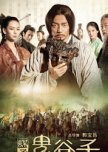This review may contain spoilers
Heavy
Stumbled across this series after Under the Microscope because of Stephy Qi, and she didn't disappoint.
This is a mostly fictionalized story around Guiguzi since there is no hard evidence around these actual ancient texts. This has the highlights and the flaws of how older series were styled. There is a heavy-hand of dramatics but because the actors and dialogue are good, it is successful in drawing you into the story. But with it also comes with some overly drawn out and long-winded scenes. This a heavy plot with an abundance of schemes, politics, and unhappiness but it affirms the beginning turbulence with the warring states. It also shows how generational leadership can cause great downfalls, the reasons for citizens to overthrow rulers, and the difficulties and sacrifices required to implement drastic reforms.
Also as with some older series, wasn't a huge fan of the female characters (not because of their acting skills). Women had limited rights so can't expect a heroine in every drama but the females were hypocritical and just weren't very likeable. The slave woman also irked me quite a bit because she depicted such a realistic side of greed. She was saved from torture and potential death and then was freed by her benefactor but decided to immediately bring her lover into the picture? She would have known her benefactor had more than just a master/slave interest in her. If she remained a slave, she likely would have never been able to marry her lover anyway. But with such a new concept of freedom, she thought it was feasible for her to just pick up and walk off with her fiance unscathed?
The camera work here was a little shaky but the actions scenes are better than most because there's no "slow-motion" or CG work to it. The costumes lean just very slightly toward cheesy in the beginning with the claws and masks. Nevertheless, I think it's still worth a watch if you're in the mood for a more solemn series. Despite the journey of many twists and turns, it was done quite well compared to many others in this genre.
This is a mostly fictionalized story around Guiguzi since there is no hard evidence around these actual ancient texts. This has the highlights and the flaws of how older series were styled. There is a heavy-hand of dramatics but because the actors and dialogue are good, it is successful in drawing you into the story. But with it also comes with some overly drawn out and long-winded scenes. This a heavy plot with an abundance of schemes, politics, and unhappiness but it affirms the beginning turbulence with the warring states. It also shows how generational leadership can cause great downfalls, the reasons for citizens to overthrow rulers, and the difficulties and sacrifices required to implement drastic reforms.
Also as with some older series, wasn't a huge fan of the female characters (not because of their acting skills). Women had limited rights so can't expect a heroine in every drama but the females were hypocritical and just weren't very likeable. The slave woman also irked me quite a bit because she depicted such a realistic side of greed. She was saved from torture and potential death and then was freed by her benefactor but decided to immediately bring her lover into the picture? She would have known her benefactor had more than just a master/slave interest in her. If she remained a slave, she likely would have never been able to marry her lover anyway. But with such a new concept of freedom, she thought it was feasible for her to just pick up and walk off with her fiance unscathed?
The camera work here was a little shaky but the actions scenes are better than most because there's no "slow-motion" or CG work to it. The costumes lean just very slightly toward cheesy in the beginning with the claws and masks. Nevertheless, I think it's still worth a watch if you're in the mood for a more solemn series. Despite the journey of many twists and turns, it was done quite well compared to many others in this genre.
Was this review helpful to you?
















